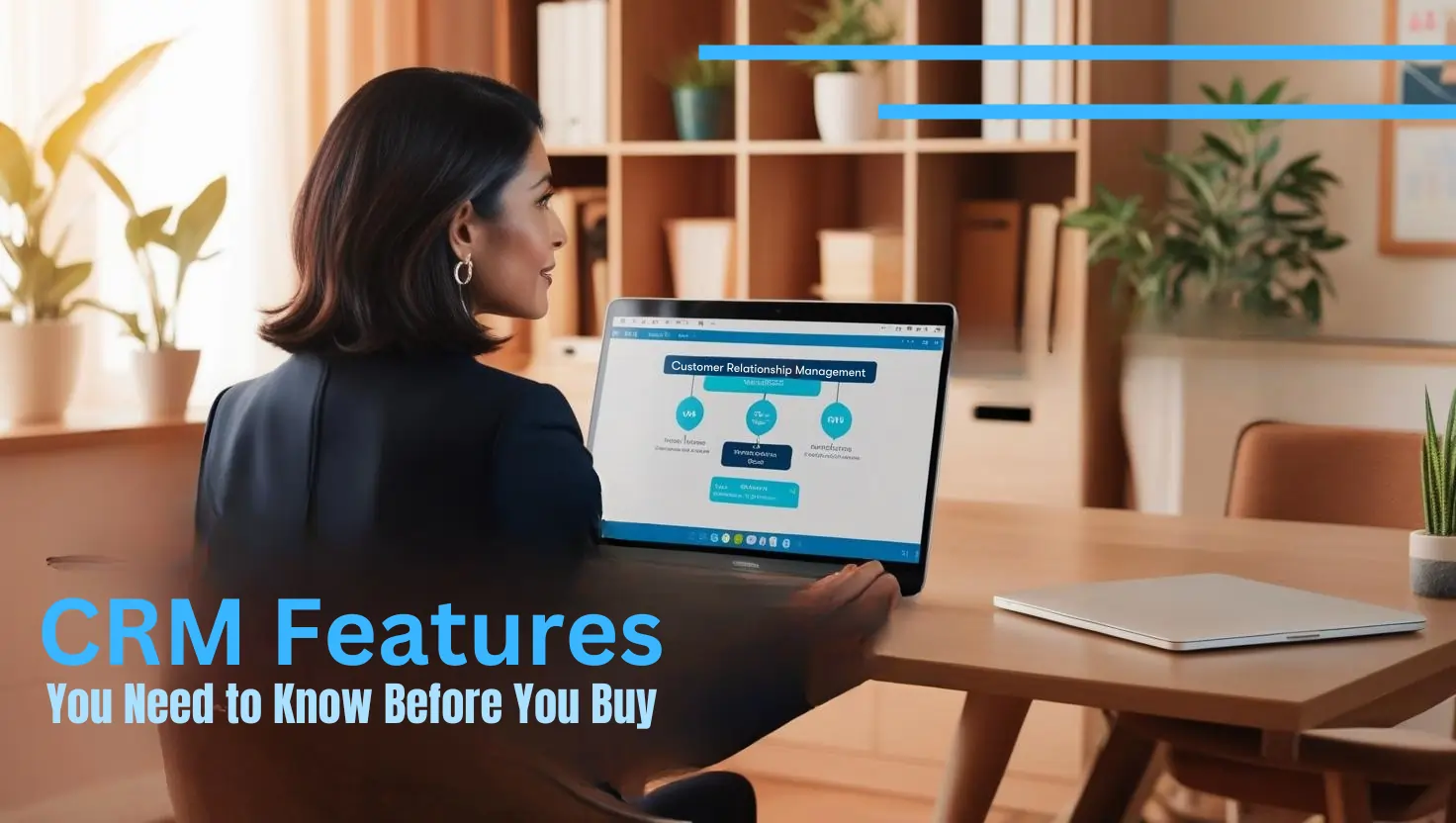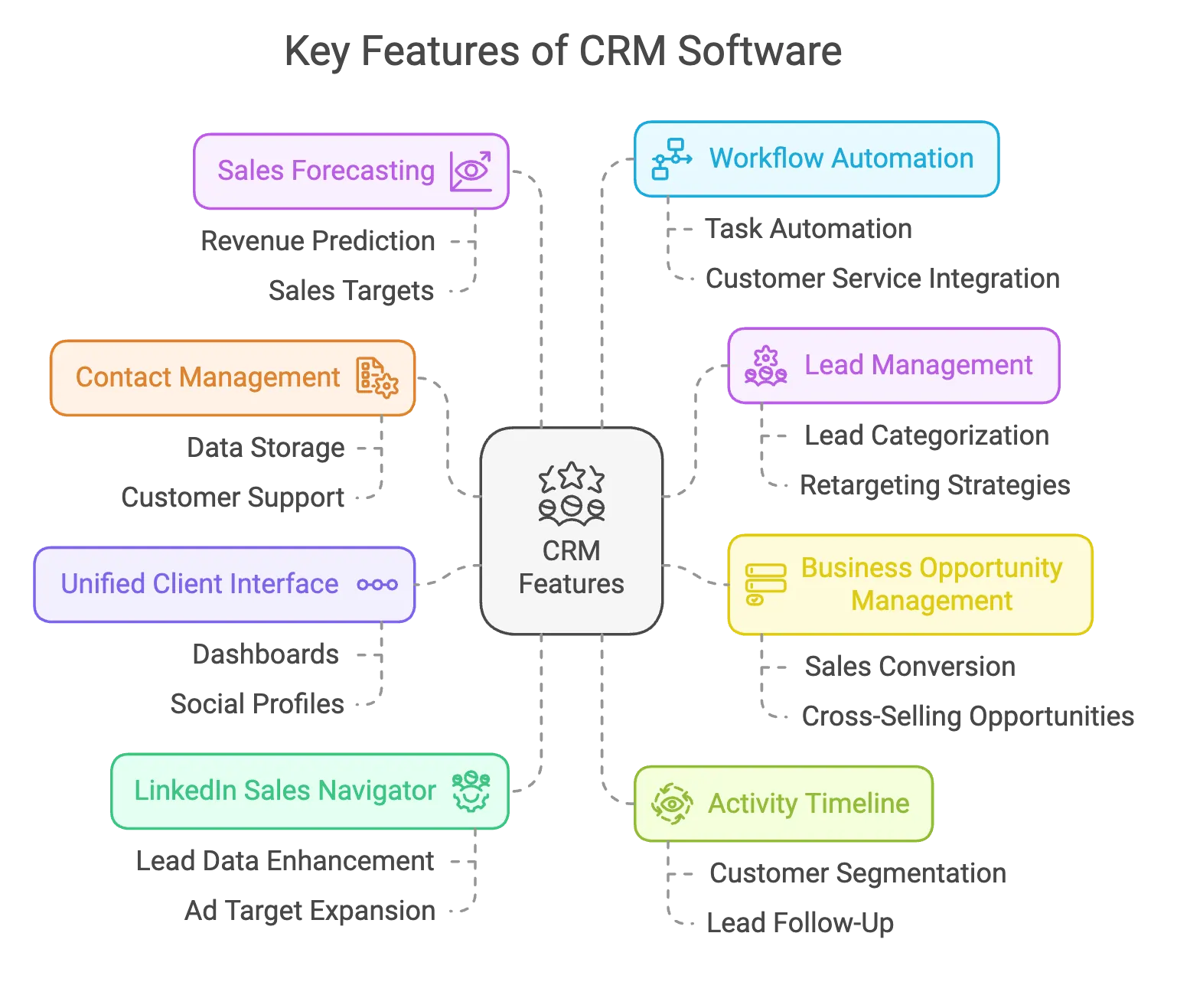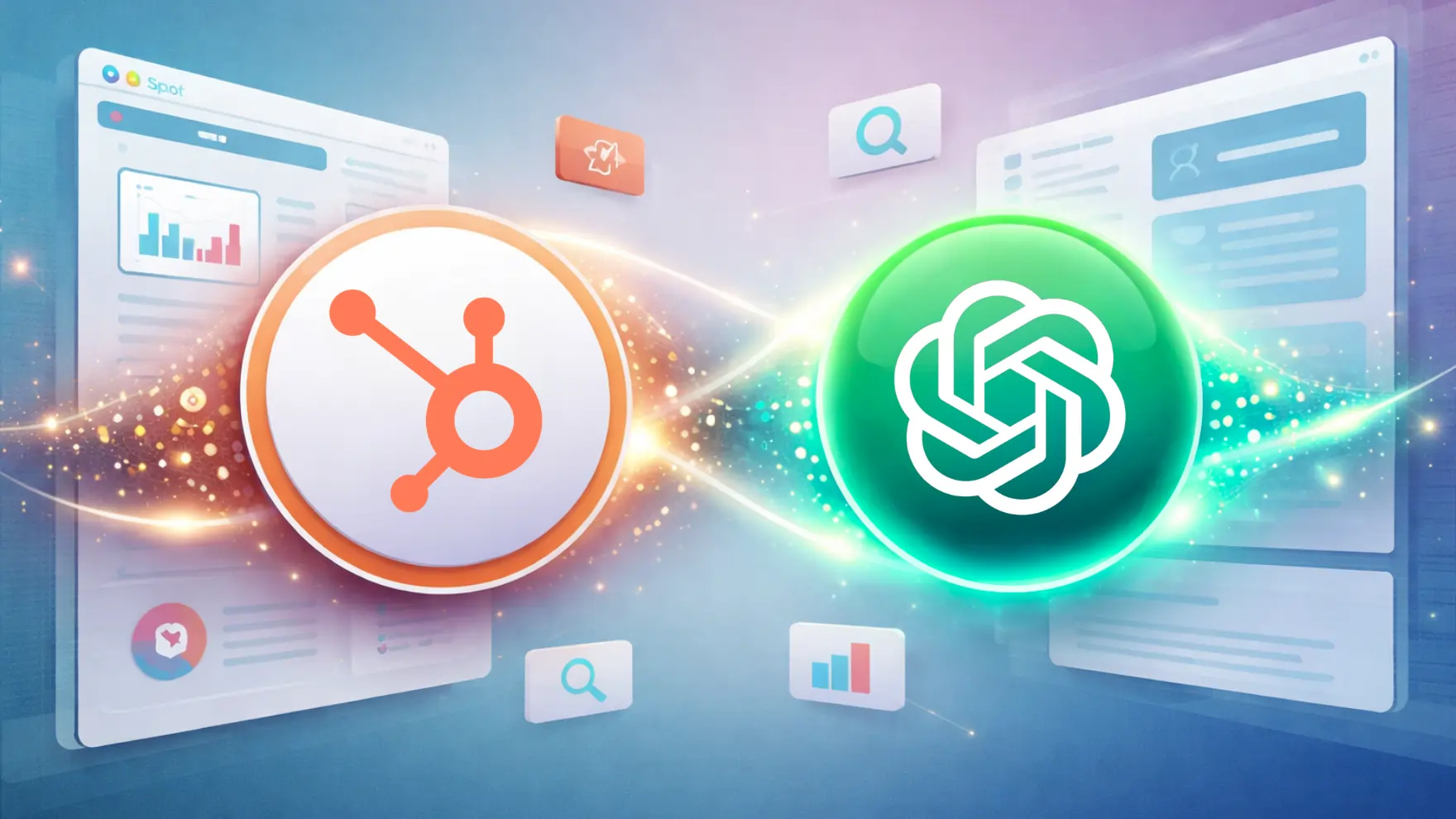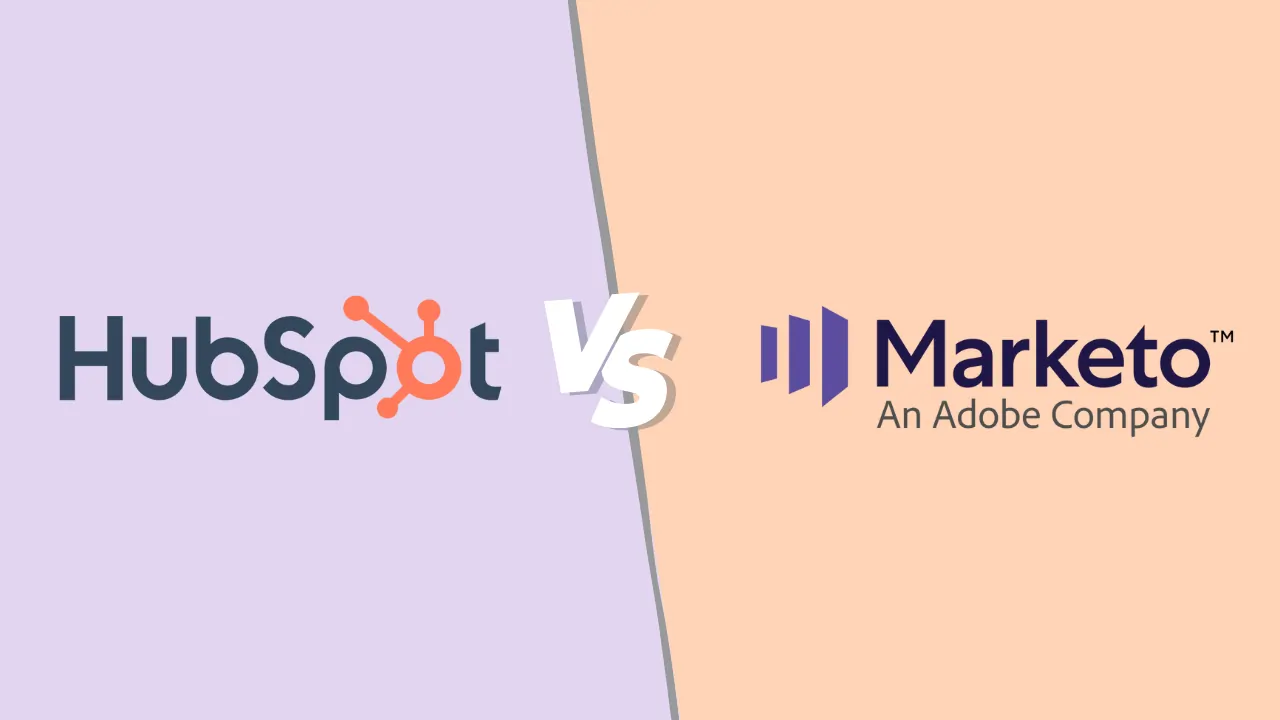9 CRM Features You Need to Know Before You Buy

Ever wonder how some businesses stay effortlessly organized, close more deals, and keep their customers coming back? One of the biggest secrets is using the right CRM software. A good Customer Relationship Management system does more than just store contacts – it helps you build better relationships, streamline sales, and grow wiser.
However, not all CRMs are created equal. To get the most out of your investment, you must understand the key CRM features for your business. In this guide, we’ll walk you through the most essential and often overlooked CRM system features so you can make the right choice.
What Is CRM and Why Does It Matter?
CRM stands for Customer Relationship Management, and it refers to both the strategy and the tools businesses use to manage interactions with customers and prospects. CRM software helps you keep track of conversations, automate tasks, and ensure every lead and customer gets the attention they deserve.
In a competitive market, CRM functionality isn’t just helpful – it’s essential. Whether you’re a small business, a startup, or an established company, the right CRM system helps you:
- Keep your sales pipeline organized
- Personalize your marketing
- Improve your customer support
- Make smarter decisions with real-time data
And thanks to mobile CRM apps, you can access all of this from anywhere.
A Quick Look Back: How CRM Has Evolved
CRM systems have come a long way since the early days of manual spreadsheets and Rolodexes. The first CRM tools emerged in the 1990s, offering simple contact and sales tracking. Today’s CRMs are cloud-based, mobile-friendly, and packed with innovative features like automation, AI-powered insights, and integrations with your existing tools.

9 CRM Features That Actually Make a Difference
Let’s break down the CRM system features that can truly make a difference:
1. Contact Management
This is the backbone of any CRM. You need a clean, searchable database that tracks names, emails, phone numbers, job titles, etc. But great CRM tools go further – they let you segment contacts, add custom fields, and log every interaction, so you always know who you’re talking to and what matters to them.
Why it’s important: It centralizes all customer information in one place, making it easier for your sales, marketing, and support teams to collaborate.
Use case: A sales rep can quickly pull up a contact’s profile to see past interactions, preferences, and notes before a follow-up call.
Business benefit: Improves personalization, boosts efficiency, and strengthens customer relationships.
2. Lead Management
No more sticky notes or spreadsheets. A CRM should help you capture, assign, and nurture leads effectively. You can see where each lead came from, what they’ve done, and what to do next. Lead scoring and status tracking help your team focus on leads that are most likely to convert.
Why it’s important: Helps prioritize and track leads so your team focuses on the ones most likely to convert.
Use case: A marketing manager assigns high-scoring leads to top-performing sales reps based on engagement history.
Business benefit: Increases conversion rates and ensures no lead falls through the cracks.
3. Sales Pipeline Tracking
This feature gives you a visual sales funnel so you can see exactly where each deal stands. Need to close more this month? See what’s in progress and where follow-ups are overdue. It helps with forecasting and improves accountability across your sales team.
Why it’s important: Provides visibility into your sales process, helping managers make better forecasts and reps stay organized.
Use case: A sales manager uses pipeline stages to monitor deal progress and identify bottlenecks.
Business benefit: More accurate forecasting and better deal management lead to increased revenue.
4. Workflow Automation
Tired of doing the same thing over and over? Good CRMs automate tasks like sending emails, creating reminders, assigning leads, and updating records. This saves time, reduces errors, and lets your team focus on what actually moves the needle.
Why it’s important: Saves time by handling repetitive tasks automatically, reducing the chance of human error.
Use case: When a new lead fills out a form, the CRM automatically sends a welcome email and notifies the sales team.
Business benefit: Increases productivity and helps your team focus on high-value activities.
5. Reporting & Analytics
Your CRM should make your data useful. You’ll want dashboards that track sales performance, campaign success, customer retention, and more. Reports should be easy to customize and help you answer real business questions – not just look pretty.
Why it’s important: Turns data into actionable insights that help you optimize sales, marketing, and support efforts.
Use case: A business owner runs a monthly report to identify which sales reps are closing the most deals and which campaigns are underperforming.
Business benefit: Supports better decision-making and continuous improvement.
6. Mobile CRM Access
Business doesn’t only happen at your desk. Whether your team is out in the field or working remotely, having access to customer info on their phones is a must. The best CRMs have mobile apps that let users update notes, check tasks, and respond to leads on the go.
Why it’s important: Keeps your team connected on the go, enabling real-time updates and responsiveness.
Use case: A field sales rep accesses customer data on their phone right before a meeting.
Business benefit: Boosts agility and allows teams to deliver better service from anywhere.
7. Email Integration
You shouldn’t have to bounce between your inbox and your CRM. Look for a system that syncs with Gmail, Outlook, or whatever you use – so you can log conversations, set follow-ups, and even send email campaigns straight from your CRM.
Why it’s important: Keeps communication organized and ensures follow-ups aren’t missed.
Use case: A salesperson logs a key client conversation directly from Gmail into the CRM without switching tabs.
Business benefit: Saves time, reduces manual errors, and improves response times.
8. Calendar and Task Management
This might seem simple, but it’s incredibly helpful. A CRM that lets you manage appointments, deadlines, and team tasks ensures nothing slips through the cracks. Bonus points if it syncs with Google or Microsoft calendars.
Why it’s important: Helps your team stay organized and ensures nothing slips through the cracks.
Use case: A sales manager schedules weekly check-ins with leads and shares tasks with the team through the CRM.
Business benefit: Improves accountability, time management, and team coordination.
9. Customer Support Tools
CRM isn’t just for sales – it’s about the whole customer experience. A good system helps your support team manage tickets, track issues, and respond quickly. Some even offer chat, self-service portals, and feedback tools built right in.
Why it’s important: Ensures quick, consistent, and personalized support across channels.
Use case: A customer service rep views a customer’s full history before responding to a support ticket.
Business benefit: Increases customer satisfaction, reduces churn, and improves brand loyalty.

Why These Features Matter
These aren’t just nice-to-have features – they solve real problems:
- You lose leads without good tracking.
- You waste time on low-value tasks without automation.
- You miss sales goals without pipeline visibility.
- You frustrate customers without timely support.
Choosing a CRM that covers these key features will set you up for smoother processes, happier customers, and stronger growth.
Benefits of Implementing a CRM Software Solution for Your Business
- Effective customer reporting: A good CRM software collects, stores, and presents customer data for easy analysis and reporting. This enables you to access all customer information, including names, positions on the sales funnel, number of purchases made, and lifetime value, helping you stay accountable for your client’s journey and improve business-client relationships.
- Better marketing automation: With customer data collected by a CRM tool, you can better understand the differences between paying and non-paying customers and refocus your marketing efforts to target people who share the attributes of your paying customers. You can also use the data to segment your clientele and improve your marketing offers for each segment.
- Monitor business performance: CRM solutions help businesses track and review customer satisfaction, collecting feedback and using it to assess business performance and improve processes.
- Improved sales and marketing automation: A CRM tool can automate many sales and marketing tasks, such as email marketing campaigns and lead tracking, helping your business to operate more efficiently and effectively.
- Enhanced customer engagement: Using a CRM to manage customer interactions and track customer preferences can provide a more personalized and engaging customer experience, improving customer satisfaction and loyalty.
- Streamlined internal communication: By centralizing customer information, a CRM facilitates better communication among team members, ensuring everyone has access to up-to-date client data, which enhances collaboration and service delivery.
- Increased sales efficiency: CRM systems help streamline the sales process, build a sales pipeline, automate key tasks, and analyze sales data in one centralized place, potentially increasing sales and productivity.
- Improved customer retention: By managing customer relationships more effectively, CRM systems can help businesses improve customer satisfaction and loyalty, leading to better customer retention rates.
- Data-driven decision-making: CRM systems provide actionable insights through analytics and reporting, helping businesses make informed decisions about sales strategies, customer engagement, and resource allocation.
- Lead management and tracking: CRMs help track leads from the first interaction to conversion, ensuring no potential customer slips through the cracks and enabling more effective follow-ups.
- Improved collaboration: With centralized customer information, team members across departments can collaborate effectively, ensuring a consistent and seamless customer experience.
- Mobile accessibility: Many CRMs offer mobile apps, allowing teams to access customer data and manage interactions on the go, improving responsiveness and productivity.
- Forecasting and planning: CRM tools analyze trends and customer behaviors to help businesses forecast sales and prepare for market changes, ensuring strategic readiness.
- Cost savings: By automating routine tasks and streamlining workflows, CRMs reduce manual errors and operational inefficiencies, saving time and money.
- Regulatory compliance: CRM systems often include features that help businesses comply with data protection regulations, such as GDPR, by securely managing and storing customer data.
- Seamless integration with other tools: Modern CRM platforms integrate easily with email marketing tools, project management software, and other business systems, creating a unified workflow and enhancing productivity.
Recommended CRM Software:
Monday CRM – Great for custom workflows and visual project tracking
HubSpot – User-friendly and powerful for marketing and sales teams
Salesforce – Industry leader with deep customization and features
How to Pick the Right CRM for You
There’s no “one best CRM” for everyone – but there is a best fit for your business. Here’s how to find it:
- Figure out your must-haves. What are your top challenges – lead tracking? Reporting? Team communication?
- Choose usability over complexity. The best CRM is one your team will actually use.
- Make sure it scales. You want software that grows with you – not one you’ll outgrow in a year.
- Look for integrations. Make sure it connects with your email, calendar, marketing tools, or e-commerce platform.
Final Thoughts
CRM tools aren’t just for big companies – they’re for any team that wants to work smarter, not harder. Whether tracking leads, following up with customers, or analyzing performance, the right CRM software features make your business more efficient, organized, and effective.
Don’t just pick the flashiest tool. Pick the one with the best CRM features for your team, goals, and future growth.
FAQ
Q: Why is it important to invest in a CRM system for a growing business?
A: A CRM system helps growing businesses understand their customers better, streamline processes, and offer products or services that meet customer needs. By leveraging advanced CRM features, businesses can improve efficiency, enhance customer relationships, and gain a competitive edge in their industry.
Q: What are some underrated features of a CRM platform?
A: Some lesser-known but impactful features include business opportunity management, unified client interfaces, and integrations like LinkedIn Sales Navigator. These tools help businesses gain deeper insights, streamline interactions, and uncover new growth opportunities.
Q: How do advanced CRM features support business growth?
A: Advanced CRM features provide actionable data, improve sales tracking, and offer personalized customer engagement tools. These benefits help businesses make informed decisions, foster loyalty, and scale their operations effectively.
Q: Can traditional CRM tools meet the needs of a growing business?
A: While traditional CRM tools cover essential functions, growing businesses often benefit from advanced features like automation, analytics, and integrations that go beyond basic offerings. These capabilities enable businesses to adapt quickly and maintain a competitive edge.
Q: What are the most important CRM features for small businesses?
A: Contact management, lead tracking, pipeline visibility, and basic automation are great starting points.
Q: What does CRM functionality include?
A: CRM functionality refers to everything a CRM system can do – from managing contacts to automating tasks, analyzing sales, and tracking customer support.
Q: How do I know if a CRM has the right features for me?
A: Make a list of your key processes, then match them against the CRM’s features. Try demos and read user reviews.
Q: What makes a CRM “user-friendly”?
A: Simple setup, intuitive navigation, and clean dashboards. If it feels like too much work to figure out, your team won’t use it.
Q: Are paid CRMs always better than free ones?
A: Not always. Free CRMs can be great for simple needs, but paid versions usually offer advanced features like automation, integrations, and detailed reporting.




